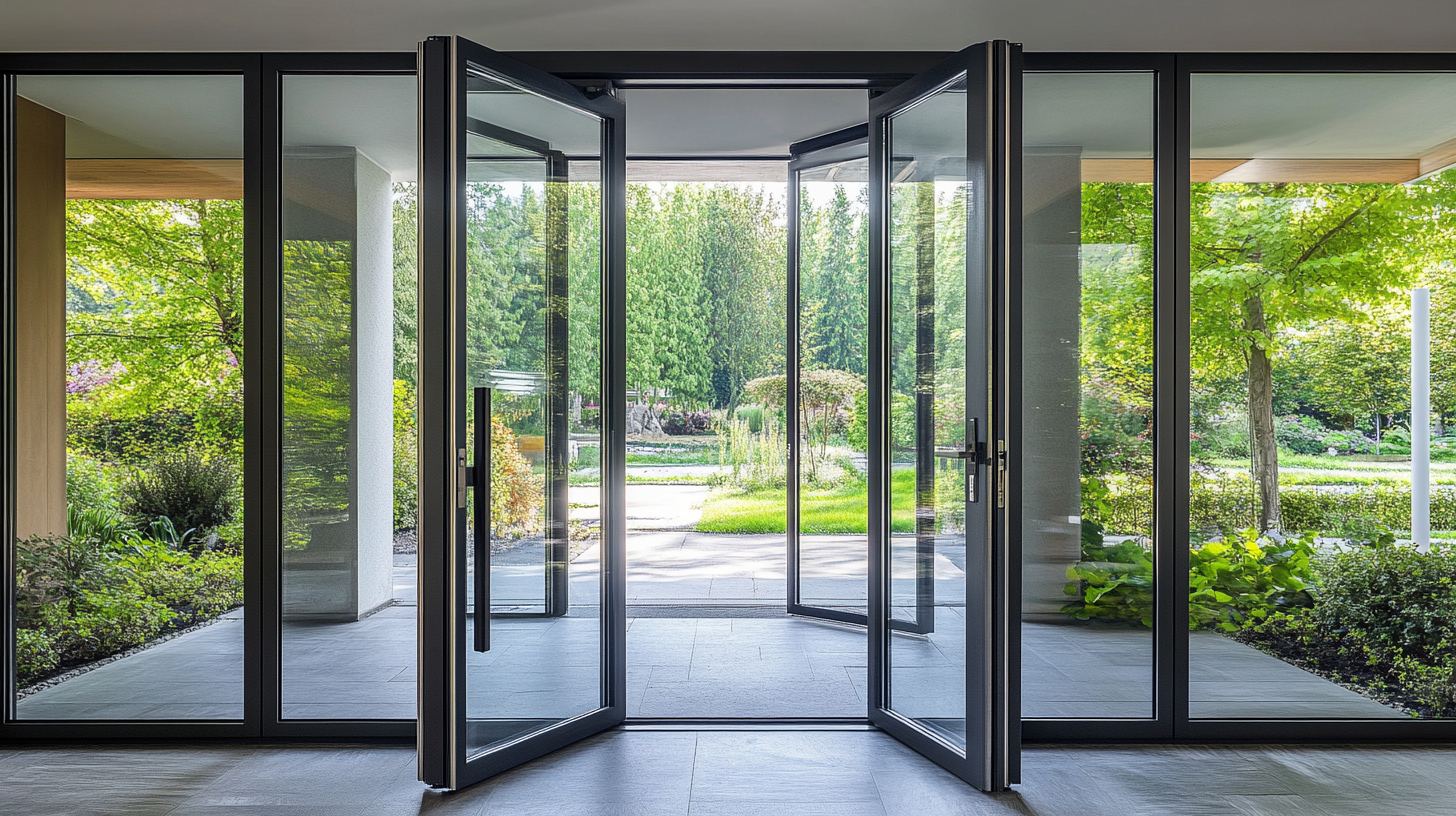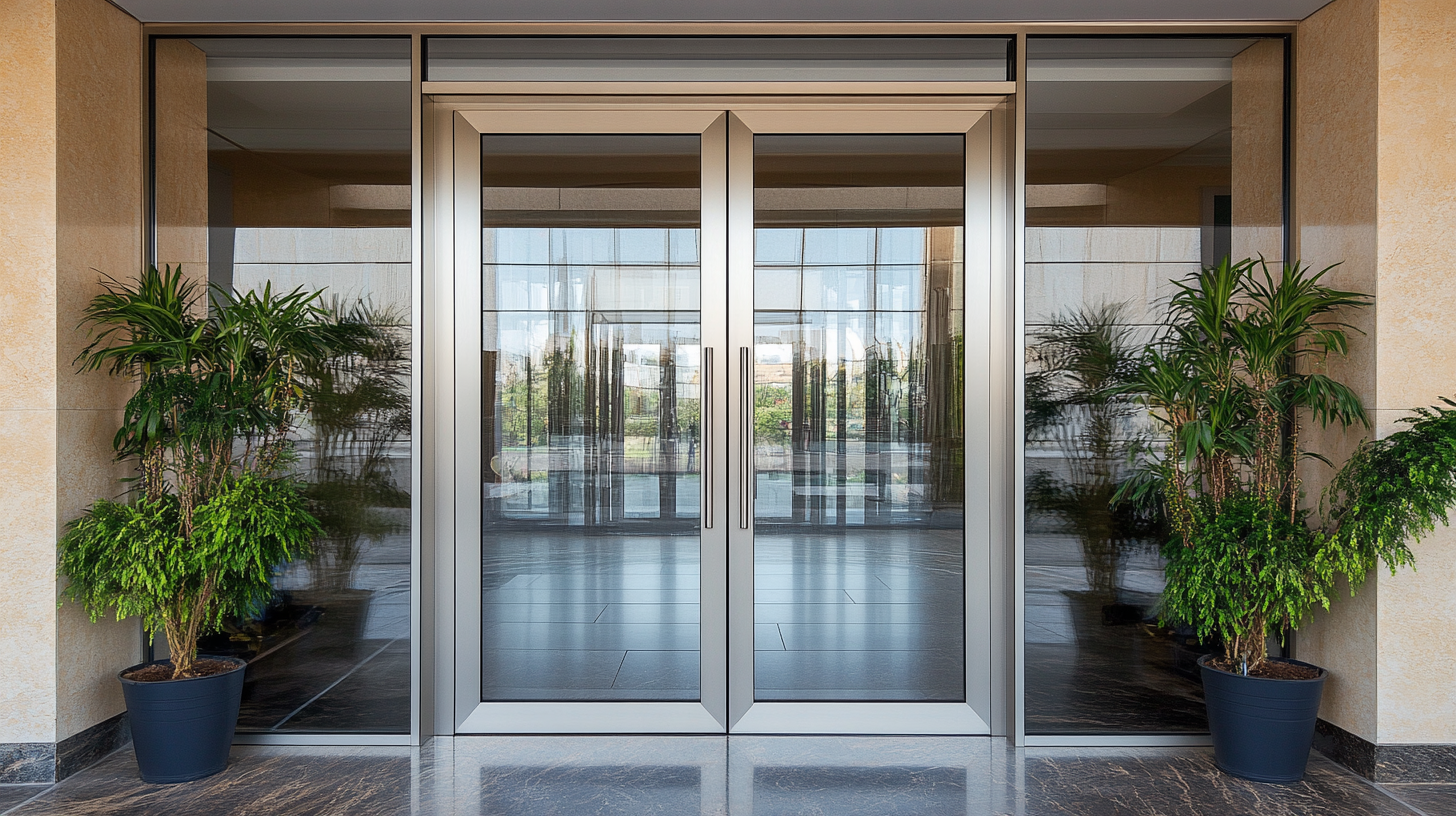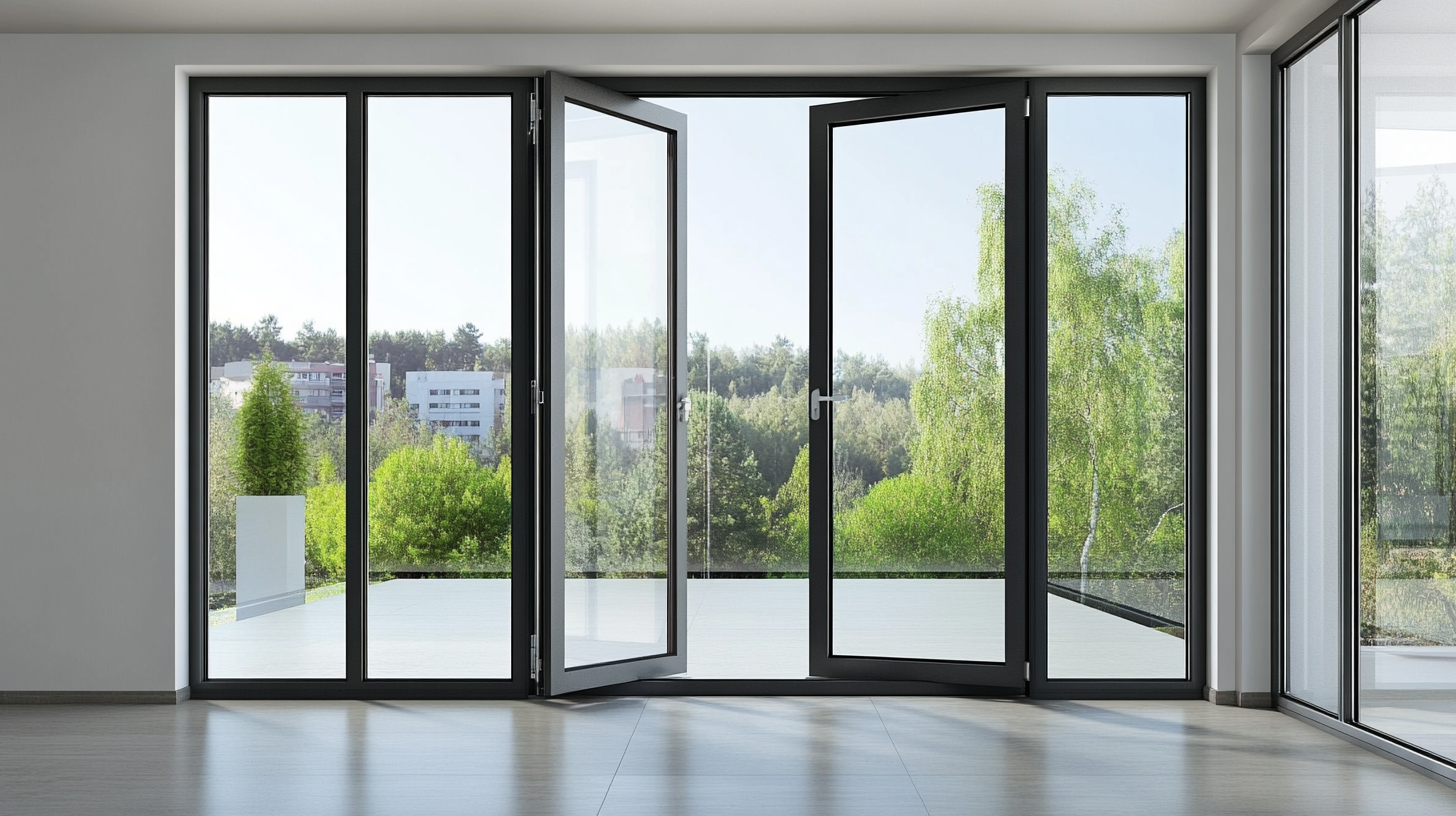7 Essential Insights for Sourcing Aluminium Door Making Machines Globally
The demand for high-quality Aluminium Door Making Machines is increasing in an evolving manufacturing business. With businesses operating across the globe, it is more important than ever to ensure that the right machinery is also sourced to aid the smooth functioning and competitiveness of the firm itself in the market. Understanding how to select the best machine goes beyond technical specifications; it also involves understanding the complex web of international suppliers, production practices, and technological advances.
This blog aims to present the seven most important considerations that will help you make informed choices if you wish to source Aluminium Door Making Machines. These insights will formulate the basis for manufacturers keen on enhancing production capabilities while maintaining quality and reliability, from supplier evaluations and variations in manufacturing processes to after-sales support. It is an important guide for streamlining your sourcing processes within the aluminium door production sector and developing a solid edge over the competition. Join us as we examine the key elements that guarantee commissions by streamlining the manufacturing process and gifting you other requisite wits on thriving in the competitive field of aluminium door production.

Key Factors to Consider When Sourcing Aluminium Door Making Machines
There are many other factors that go into sourcing aluminum door making machinery. Most importantly, understand the machine specifications and capabilities. Look for machines that are versatile, efficient, and of high-quality output. Analyze the performance metrics such as speed of production, energy consumption, and maintenance metrics to ensure that they meet your operational goals. Reputation and Reliability of Supplier is another important aspect. You should research suppliers and get to know their tenure with respect to industry experience as well as feedback from customers. A good supplier is not only going to provide quality machines but also after-sales application support for spare parts and technical assistance to be in the best shape to minimize downtimes and ensure operations run as smoothly as possible. Also, consider total cost of ownership purchase price and installation, maintenance, and operation costs. While cheaper might prove tempting, a higher quality machine for a little more money may save far more and run better over the long term. Certainly, not the least of these are the international safety and quality standards, because the machines would not only be performing effectively but will also set a good reputation for your organization within the market.

Understanding the Global Market Trends for Aluminium Door Manufacturing Equipment
The knowledge of global market trends is a vital pre-requisite for both the manufacturers and suppliers while sourcing aluminium door-making machines. The aluminium door manufacturing industry has seen a tremendous upsurge due to rising construction activities and giving preference to energy-efficient products. Demand for advanced machinery is spiraling up, which has an influence on sourcing strategies all over the world as consumers and builders increasingly choose aluminium doors because of their strength and appeal.
Automation is one of the recent trends affecting the market. Modern technologies are being integrated into the machinery by manufacturing companies in the form of automation using AI and IoT for productivity and precision enhancement. While it reduces the cost of labor, it additionally increases the quality of the final product. Sourcing machines with these technologies is becoming essential as companies try to keep up with consumers having higher expectations on performance and design.
Additionally, sustainability has materialized as a main driver in the sourcing of aluminium door making machines. Machines minimizing waste and energy-efficient-environmentally friendly operation are being sought after by manufacturers increasingly. Suppliers need to innovate and develop equipment that supports sustainable manufacturing practice, thus influencing purchase decisions throughout various regions. Acquaintance with these market trends will enlighten a buyer to better arm themselves with competition in the aluminium door-making industry.

Evaluating the Quality and Durability of Aluminium Door Production Machines
Sourcing worldwide aluminium door production machines entails the quality and durability of these machines being under constant evaluation. Demand for sound aluminium doors is on the rise due to smart technology such as smart door locks, which require sound and heavy-duty construction. Therefore, manufacturers must ensure that the machines in which they invest can consistently provide high-quality aluminium doors able to satisfy modern safety and durability standards.
Quality in aluminium door manufacture starts with the quality of the material, but the machine's capability is equally important in its contribution to quality. Machines with precise operation of cutting, shaping, and assembly functions will go a long way in improving overall product performance. Advanced, up-to-date machines will therefore allow the introduction of features such as smart locks, fulfilling consumer demands for security and convenience. Thus machines that integrate quality production methods with smart functions will gain an edge in the current market scenario.
Durability also has to be properly regarded. The machines should be strong enough to facilitate uninterrupted operation while meeting certain quality standards. Harsh yet smart maintenance scheduling coupled with stronger designs that reduce downtime will increase the lifetime of said machines while securing your investment. As industry progresses, it will also be nurturing acceptance of machinery innovations to improve production efficiency and ensure products fit the palette of the quality-concerned consumer in today's market.

Navigating Import Regulations and Tariffs for Aluminium Machinery
When sourcing aluminum door-making machines globally, knowledge of import regulations and tariffs becomes crucial to the smooth transaction of negotiated prices and avoidance of unforeseen costs. As per the Global Trade Administration's report, aluminium machinery market growth is forecasted to witness significant growth momentum at a 4.5% compound annual growth rate from 2022 to 2027. To be able to take full advantage of that great potential, it would necessarily require good navigation through the import regulatory environment.
Different countries charge their own tariffs for the import of machinery, which has a big say in the total cost. For example, WTO stresses the point that the European Union mainstay usually imposes ad-valorem tariff rates on machinery in a range of 0-6%, depending on the respective classification. Additionally, in the regions of Asia-Pacific, governments are attempting to bring tariffs down and promote local manufacturing, thus affecting global sourcing strategy.
Equally important to consider is compliance with safety regulations and environmental standards; otherwise, fines could be levied and customs clearance could be delayed. An ISO survey shows that 30% of imported machinery does not meet regional safety standards, highlighting how vital due diligence should be before making that purchase. All in all, furnish yourself with information regarding import regulations and possible tariff impositions to smoothen out the sourcing procedure and keep the entire operational realm of aluminum door manufacturing enterprises beyond any doubt on the competitive index globally.
Top Manufacturers and Suppliers of Aluminium Door Making Machines Worldwide
Global sourcing for aluminum door making machines necessitates a clear understanding of the top manufacturers and suppliers in order to dodge sourcing bad machines that cannot deliver on quality and reliability. New innovations have come up in the market due to increasing demand for lightweight and durable materials which are critical in industries, such as automotive and constructions. Top players in the space of aluminum manufacturing have already pulled in newer technologies to upgrade the efficiencies and capabilities of the machines.
Major reports give insights that companies dealing with lightweight materials like aluminium are opening avenues for future applications across a wide range-from automobile systems to aerospace components. As the fields tend towards sustainability and increased performance, therefore, so does the looming demand for more effective aluminum door manufacturing machines. Manufacturers will benefit from fitting in with suppliers who can provide them great quality equipment alongside the heights of expertise related to evolving industry standards.
Typically, the companies produce collaboration between manufacturers and suppliers-critical premises to which leading innovators in materials have advanced. Key to remaining strong in a global economy is cutting-edge supplier sourcing that is linked with research and development as institutions invest in innovation. This trend is evidently reflected in the level to which industries are seeking to address rising expectations on quality and functionality in produced items.

